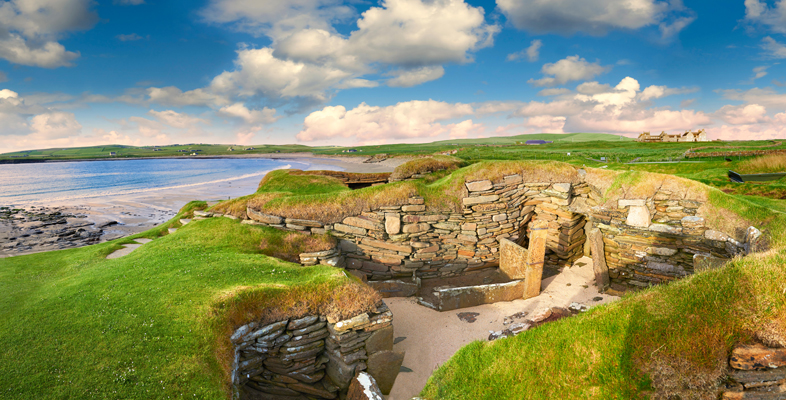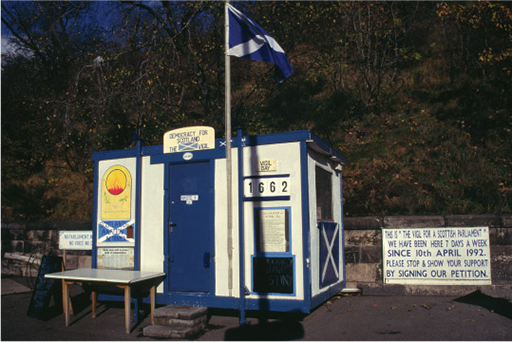2.2.3 Public order
Maintaining public order and security is regarded by many as one of the most important functions of law, as without public order it is difficult, if not impossible, for a society to function.
Activity 2 Public order in law
Think about what is meant by public order. Identify some situations where public order is threatened. How is public order maintained and who is responsible for maintaining it? Make some notes on your ideas in the box provided.
Comment
You will probably have identified that public order entails ensuring people can go about their daily lives in peace without the threat of violence. It allows society to function peacefully. You may have identified some different examples of threats to public order, such as riots and demonstrations. It could be political or religiously motivated demonstrations that occur from time to time.
You also may have recognised that one of the functions of the police is to maintain public order. In Scotland there are a range of public order laws designed to control the conduct of public meetings and demonstrations. There are also laws that impose criminal liability on those who commit public order offences, such as rioting and looting.
Demonstrations and protests can however play an important role in society. Through demonstrations and protests many changes in the law have been made. When the vast majority of society had no say in parliamentary lawmaking (as they did not have the right to vote) it was one of the few ways in which their voices could be heard.
One of the more recent demonstrations was that of the ‘Democracy for Scotland’ vigil, which lasted over five years, only ending when it was clear that a new Scottish Parliament would be established and the democratic deficit in areas such as lawmaking would be addressed. The museum of Scotland has a number of exhibits recognising the contribution that such events have made to Scottish history, society and lawmaking.
Modern democratic societies subscribe to the principle that there is a balance to be struck, and public order should not be maintained at the expense of people’s freedom to express their opinions and beliefs in public, and to assemble to protest peacefully. These are important ingredients of freedom of expression in a democracy and need to be protected by the law.
However, some people believe that a person should be free to say anything, even if it offends certain sections of society or incites people to violence and hatred. The legal limit on what is deemed acceptable for people to say and do in public varies in and between different societies and cultures and has evolved over the years. Law has to maintain the balance between maintaining public order and providing freedom of expression and assembly, which allows people to demonstrate their opinions, but this is not always an easy balance to maintain.

